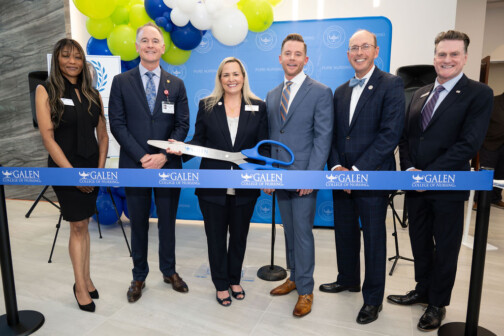
There is not much I love more than winning new business. When a retailer or an asset manager says, “We have awarded the opportunity to UCR,” my smile is big and my gratitude is immediate.
For years, I have taken deep dives into what it takes to win business. I have read about, witnessed, and practiced almost daily for 38 years the art of helping people get what they want and need. Recently, I had the incredible opportunity to help Capital One executives and Stan Lotridge, UCR’s executive vice president, conduct an RFP process to identify and procure retail broker partners to help Capital One expand its 360 concept in various markets. I watched dozens of 90-minute presentations from the best national and independent retail real estate services firms in the United States. What I witnessed compelled me to share the following things about how to win new business:
1. It’s not about you. A presentation of services is not about the presenter; it is about how the presenter understands the client and their needs. It is a dialogue. Don’t go into a meeting and sell—go into a meeting and commence the service process.
2. Be relevant. Sure, it’s helpful to relate your previous experience and successes to the task at hand, but make sure the examples you cite are relevant to the client to whom you are pitching. Engage the prospective client. Ask them how your past experience might match the challenges they are currently facing.
3. Do your research. Understand your potential future client’s point of differentiation and their value proposition, For instance, the site Yelp.com can be an amazing research tool for retail brokers. The really good presenters had researched on Yelp to see what the customer reviews said about the new Capital One 360 Café in San Francisco. Their use of the tools made available by the digital age certainly appealed to an online banking strategy.
4. Match the tone your audience sets. The best presentations we saw were from presenters who figured out the tone of the audience and matched it. They judged the mood; they figured out the cadence; they knew not to overpower. They created excitement appropriately, and they recalibrated often. They maintained sincere meaningful eye contact and they listened – they listened really well. They made the prospect the center of attention – not the presenter.
5. Don’t sell—educate. The best presentation we heard put on a clinic of professional selling. Why? Because they did not sell–they advised. From the moment they started, the Capital One folks knew that they were being given excellent market planning and information. They felt the genuinely sincere desire to truly be helpful.
I truly believe the art of being an excellent salesperson can be learned, and I have conducted seminars for NTCAR and other organizations on the subject. Much of my material comes from experience, but a great deal comes from the following books:
- The One Minute Salesperson by Spencer Johnson and Larry Wilson. This quick and easy read published in 1984 still has the most relevant message, and I draw from it often. It is called “The Wonderful Paradox” and it states: “I have more fun and enjoy more financial success when I stop trying to get what I want and start helping other people get that they want.”
- Go-Givers Sell More by Bob Burg and John David Mann. I have witnessed many times the power of “creating value.” This book outlines a powerful and effective approach to selling.
- The Trusted Advisor by David Maister, Charles Green, and Robert Galford. This book was shared with me by Brandon Harris, one of UCR’s truly “trusted advisors.” A required read by Sanford C. Bernstein Financial, this book opened my eyes to the development of trust and the success that follows.
- The Likeability Factor by Tim Sanders. Wow, what an inspirational read! I am convinced that the more you are liked, the better your life will be. “Friendliness, relevance, empathy, and realness” are the keys to raising your likeability factor.
- Character Strengths and Virtues by Christopher Peterson and Martin E.P. Seligman. Often we speak of one having great character, but what does this mean? These two noteworthy professors painstakingly examined strengths and virtues. The question is: “Can character be taught?” We need to understand the strengths and virtues that people universally appreciate for the simple reason that people buy from people they like and whom they trust.





